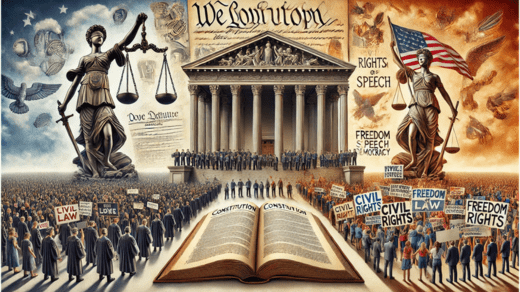-
A Complete Guide to Federal Prisons and How to Prepare for the Journey
Understanding the federal prison system is important for anyone facing charges, supporting a loved one, or researching the U.S. justice structure. When people search for information about federal prisons, they often want clarity on how these institutions work, what daily life looks like, and how individuals can prepare before surrendering. This guide explains the different
-
30-Minute Overview: Understanding the Role of Constitutional Law in Modern Governance
1. What is Constitutional Law? (5 Minutes) Constitutional law refers to the body of laws derived from a nation’s constitution that: Defines governmental structure (e.g., executive, legislative, judiciary). Distributes powers between different levels of government (federal, state, local). Safeguards individual rights through fundamental principles like equality Also read: and liberty. 2. Core Functions of Constitutional
-
The 25 Most Influential Amendments in Constitutional History
United States Constitution First Amendment (1791) Protects freedoms of speech, religion, press, assembly, and petition. Fourth Amendment (1791) Prohibits unreasonable searches and seizures, ensuring privacy rights. Fifth Amendment (1791) Guarantees due process, protects against self-incrimination, and prohibits double jeopardy. Also read: Thirteenth Amendment (1865) Abolished slavery and involuntary servitude, except as punishment for a crime.
-
20 Frequently Asked Questions About Constitutional Law
1. What is Constitutional Law? Answer: Constitutional law is the body of law derived from a country’s constitution. It explains the structure of government, the division of powers, and the rights and freedoms of citizens. 2. What is the Purpose of a Constitution? Answer: A constitution is the supreme law that frames governance, safeguards individual
-
Constitutional Law and Civil Rights: Protecting Freedoms in a Democratic Society
In a democratic society, the principles of constitutional law and civil rights form the bedrock of freedom and justice. These principles not only define the structure and functioning of government but also ensure that individual liberties and rights are protected against infringement. Understanding the interplay between constitutional law and civil rights is crucial for anyone
-
40 Landmark Constitutional Cases That Shaped History
United States Marbury v. Madison (1803) Set up the rule of judicial review, giving courts the power to declare laws unconstitutional and thus invalid. McCulloch v. Maryland (1819) Confirmed federal sovereignty over state legislations and vindicated congressional implied powers Brown v. Board of Education (1954) Also read: Ruled segregation of races in public schools unconstitutional


